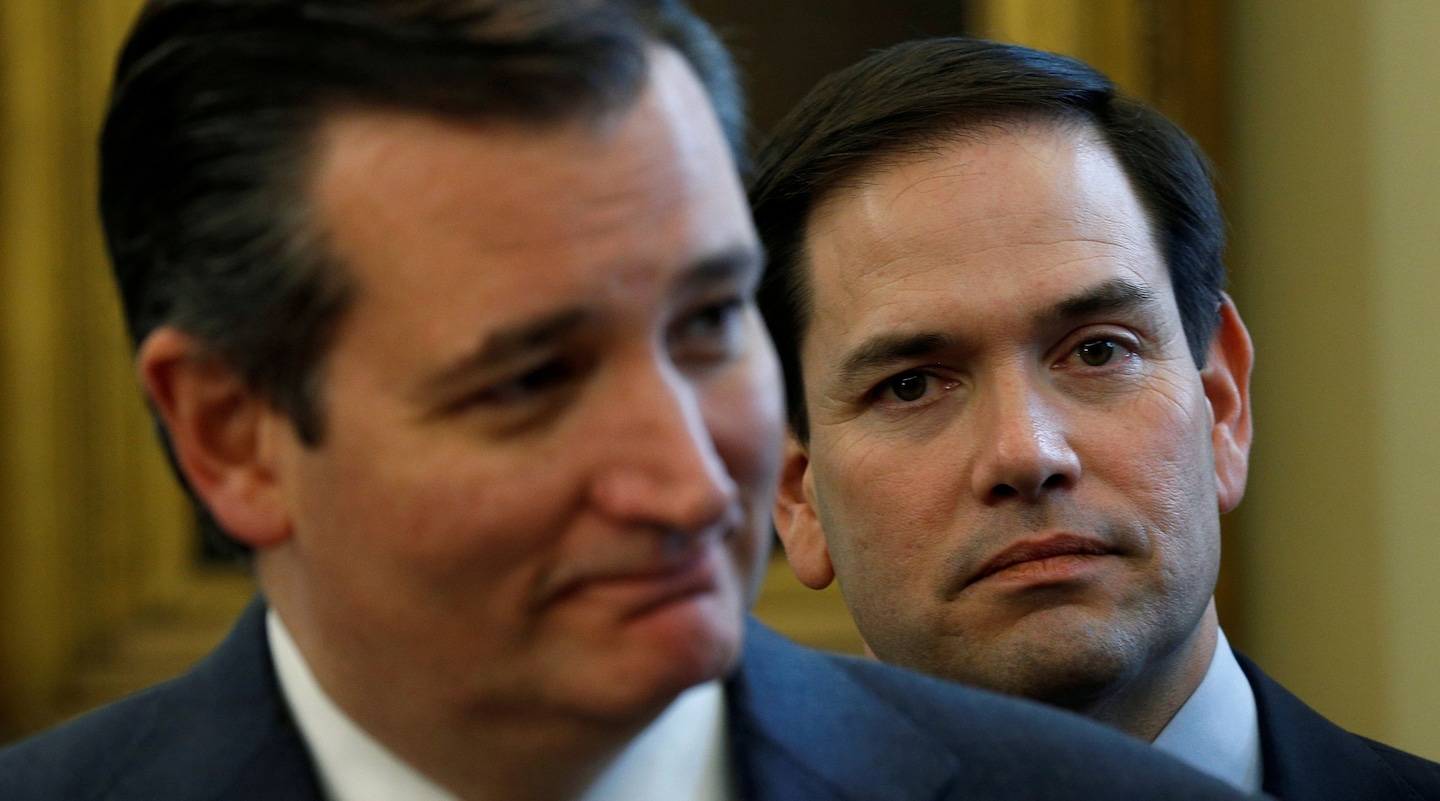China puts retaliatory sanctions on U.S. lawmakers, NGO chiefs

Hong Kong media tycoon Jimmy Lai was arrested early Monday on unspecified allegations of colluding with foreign forces. It was unclear if the sanctions on U.S. politicians were related, but Chinese state media outlets have long criticized Lai for being friendly with American lawmakers and human rights activists.
China’s Foreign Ministry said Monday that it was imposing sanctions on Republican Sens. Patrick J. Toomey (Pa.), Tom Cotton (Ark.) and Josh Hawley (Mo.). It reannounced sanctions against three Republican lawmakers first blacklisted by Beijing last month, Sens. Marco Rubio (Fla.) and Ted Cruz (Tex.) and Rep. Christopher H. Smith (N.J.).
The leaders of five NGOs sympathetic to the Hong Kong pro-democracy protesters were also put on China’s sanctions list: National Endowment for Democracy president Carl Gershman, National Democratic Institute president Derek Mitchell, Human Rights Watch executive director Kenneth Roth, International Republican Institute president Daniel Twining and Freedom House president Michael Abramowitz.
The sanctions are largely symbolic, as few U.S. politicians keep extensive assets in China. But they showed Beijing is continuing on the path of responding tit-for-tat to the Trump administration.
In an analysis of Beijing’s responses to Washington ahead of the new sanctions, researchers Adam Ni and Yun Jiang at China Neican wrote that China was pushing back hard against each measure from the Trump administration to avoid an appearance of weakness.
“An assertive tit-for-tat,” they wrote, “risks further escalation, but at least sends a consistent message that Beijing is willing to impose costs on the U.S. in response to U.S. actions. So Beijing will almost certainly continue to adopt a tit-for-tat approach to responding to Washington.”
One move where Beijing has yet to respond to is the U.S. sanctions on TikTok and WeChat, a major blow to the country’s Internet industry. Chinese Foreign Ministry spokesman Zhao Lijian decried the move on Monday at the same press briefing where he announced the sanctions, but did not say how China planned to respond on TikTok and WeChat.
Following in the Foreign Ministry’s shift toward a more defiant tone this year, Zhao spent part of the press briefing mocking U.S. officials for getting Lam’s address wrong.
“I’d like to quote Carrie Lam and other officials’ remarks,” he said, repeating Lam’s comment that the Treasury Department had listed her residential address as Victoria House, when her official residence is Government House.
“Don’t the U.S. officials know where the chief executive lives?” he asked.
Zhao, known for his provocative statements on Twitter, also noted that Hong Kong Justice Secretary Teresa Cheng, who was among those added Friday to the U.S. sanctions list, said it was her “honor to serve the people and serve the country” and that she didn’t want to go to the United States anyway.
“I’d like to acclaim them on behalf of all the Chinese people,” Zhao said, of the sanctioned Hong Kong officials’ responses.






